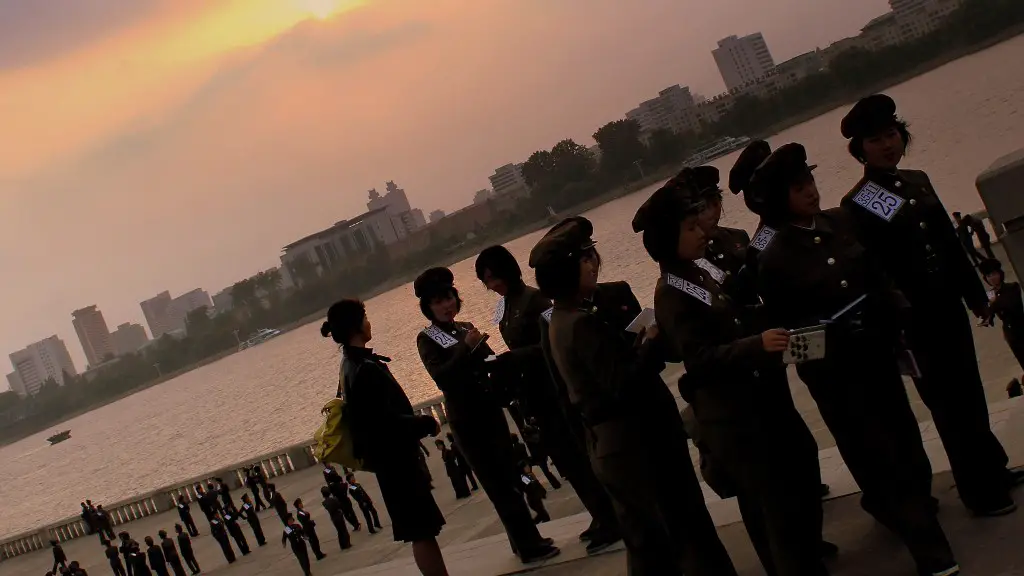North Korea’s Type of Prisons
North Korea (the Democratic People’s Republic of Korea) is an isolated country with tightly-controlled borders, ruled by the third generation of the Kim family, collectively known as the Kim dynasty. North Korea has a long history of repression under the rule of the Kim dynasty since 1948.The human rights crisis in North Korea is one of the worst in the world, and its prison system have been accused of condoning acts of torture and execution. North Korea has three types of prisons: ordinary prisons, Political Prison Camps, and ‘re-education’ camps.
Ordinary Prisons
Ordinary prisons, also known as prison colonies, are for incarceration for any North Korean who commits ‘normal’ crimes, including a range of anti-government activities such as spreading rumours, watching a banned South Korean film, or attempting to escape. Prisoners can be subjected to extreme physical and psychological mistreatment, including torture, and they are expected to work long hours outdoors, in labour camps and in factories.
Political Prison Camps
Political Prison Camps, also known as Gulags, are designed to hold people labelled as politically dangerous by the North Korean regime. It is estimated that up to 200,000 people are being held in six camps, where they are subjected to intense forced labour, starvation and brutal treatment.The conditions in the camps are severe, with some prisoners living in unheated bunkers and exposed to the elements. Some prisoners are used as human guinea pigs for medical experiments and torture.
‘Re-Education’ Camps
The North Korean government also runs several camps for prisoners to undergo ‘re-education’. These camps are mainly for former government detractors and activists, and often employ tactics such as humiliations and beatings. In these re-education camps, prisoners are subjected to forced labour, intensifying physical activity and brainwashing tactics to erase their previous life and transformation in to a compliant worker.
Inhumane Treatment
North Korean prisons are notorious for the inhumane treatment of their prisoners. According to reports in the media and by international watchdogs, human rights abuses are a daily occurrence. Prisons are overcrowded, with cells often housing several times the number of prisoners they were designed for. Prisoners are deprived of basic necessities such as food, medical care and sanitation, leading to large numbers of reported cases of death due to starvation, malnutrition and even untreated medical conditions. Rape and torture are also reported to be a frequent occurrence in North Korean prisons, with some prisoners subjected to extreme forms of torture such as electrocution and beatings.
International Reactions
The international community, including the United Nations and individual countries, have condemned North Korea’s prison system, particularly the Political Prison Camps and ‘re-education’ camps. In 2011, the UN Commission of Inquiry on Human Rights in North Korea released a 400-page report documenting “systematic, widespread and grave violations of human rights” in North Korea, including systematic and widespread crimes against humanity committed against prisoners. The commission recommended that North Korea be referred to the International Criminal Court.
Media Coverage
The media has played an important role in exposing the systemic human rights violations in North Korea’s prison system. In recent years, there have been several eyewitness accounts from former prisoners and defectors, which have shed light on the harrowing conditions in North Korea’s prison system. In addition, international organisations such as Amnesty International and Human Rights Watch have issued several reports and conducted research into North Korea’s prison system.
Implications of North Korea’s Prison System
The implications of North Korea’s prison system are alarming. Those imprisoned are often subjected to inhumane conditions, torture, and even death. Additionally, the prison system silences dissenters and reinforces the rule of the Kim dynasty. As long as these prison camps exist, the citizens of North Korea will remain under constant fear of punishment.
International Pushback
Due to international pressure, the North Korean government has been gradually forced to change its tactics in dealing with prisoners. In 2013, foreign organisations were invited to visit the North Korean prison system for the first time, and in 2014, all political prisoners released after serving more than 20 year sentences. In addition, international organisations have initiated campaigns to raise awareness on the plight of North Korean prisoners and call for action from the international community, including targeted sanctions on North Korea’s prison system.
Recommendations for Change
The international community needs to continue to push the North Korean government to make reforms to its prison system, and provide more access to the prisoners. Increasing pressure from international bodies, including the UN Security Council, is key to improve the prison situation in North Korea. In addition, international organisations such as Human Rights Watch and Amnesty International should continue to monitor and document the human rights situation in North Korea, and keep the international community informed of the plight of the North Korean prisoners.
Increased Public Awareness
Increased public awareness is also important in raising awareness of the situation of North Korean prisoners. Governments, the media, NGOs, and individuals can all play a role in creating awareness and pressure on the North Korean government to change its laws and practices on human rights. Social media and other digital platforms have been effective in reaching a wider audience, and can be used to educate people about the situation and to pressure North Korea to make immediate changes to its prison system.
International Aid
In addition to increased pressure, international aid is needed for the North Korean prisoners. Currently, North Koreans who escape the prison system face significant difficulty in resettling abroad, and lack access to basic necessities such as food, shelter and medical care. International aid should be targeted to help improve the situation of those who have escaped from North Korean prisons, and to provide assistance to prisoners in camps.
Increased Pressure from Regional Governments
Regional governments, including those in China and South Korea, should also increase pressure on the North Korean government to reform its prison system. China, in particular, has significant influence over the North Korean government and should use its leverage to demand an end to the abuses in the prison system. Countries in the region should also consider providing assistance to those who have escaped from North Korean prisons, and to those who are still imprisoned.



